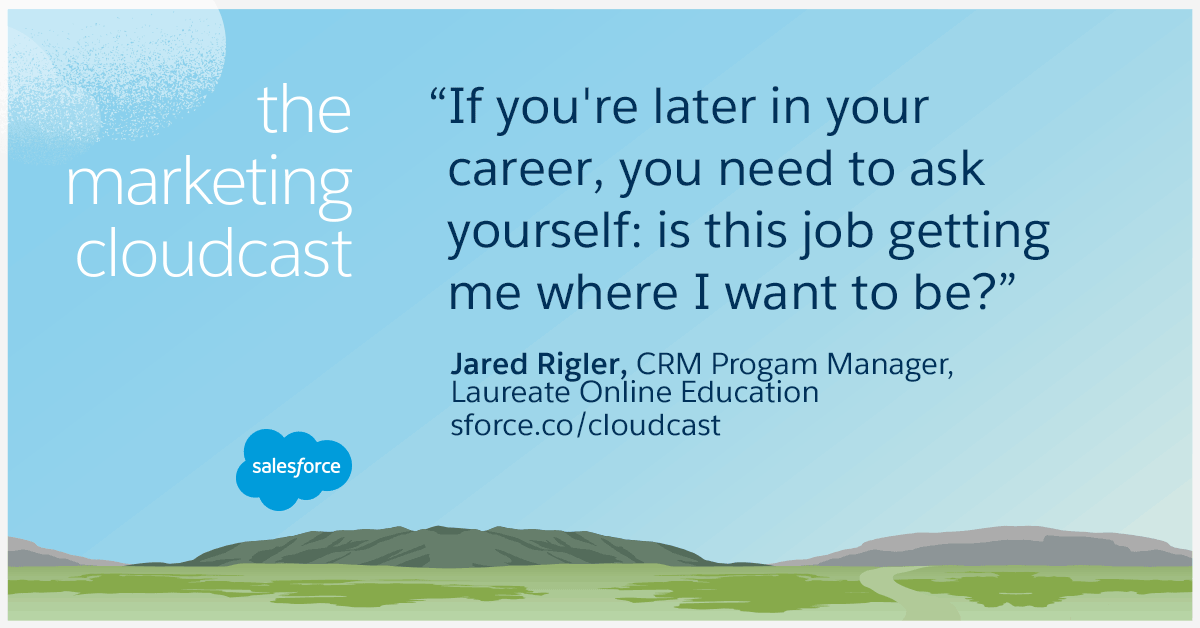6 Strategies To Make a Career Change To Marketing



A career in marketing can be fun, creative, rewarding, and smart for the long-term — businesses will always need to market their products, no matter what else changes in consumer behavior or industry trends. As the world quickly transforms and career paths are changing at the speed of light, you
A career in marketing can be fun, creative, rewarding, and smart for the long-term — businesses will always need to market their products, no matter what else changes in consumer behavior or industry trends.
As the world quickly transforms and career paths are changing at the speed of light, you may find yourself interested in a marketing career even without much formal training in it — and that’s normal. These days, not everyone ends up making a career in their college major. Personally, I was an English major and worked at a publishing company before I decided to dip a toe into content and social media marketing.
But switching careers can be downright terrifying. Especially if your resume doesn’t have a ton of marketing-specific experience, you may have serious anxiety about switching to marketing from another career. (Job interviews are anxiety-inducing, too. Check out these job interview tips for less stress if you’re in this process right now.)
In the newest episode of the Marketing Cloudcast, Salesforce’s award-winning marketing podcast, we’re talking to two real-life marketers who made a mid-career switch to marketing (one from sales, one from journalism) and a career counselor who shares strategic tips on making the switch less scary.
Take a listen here. For the full conversation that’s filled with many more insights, subscribe on Apple Podcasts, Google Play Music, Stitcher, or wherever you listen to podcasts.
Here are six key steps to help you switch to marketing from another career.
1. Change only one lane at a time.
From a strategic perspective, Katie Smith, CEO of career development firm Careerable, recommends trying to change only one lane of your career at once. Don’t try to dart across a metaphorical eight lanes of the 405 Freeway.
Here’s how she recommends approaching your career switch: “Think about your current functional skillset, so your transferrable skills or what you’re currently doing in your job — that’s one lane. The second lane is your professional network; where are your relationships? The third lane is your industry knowledge. If you try to switch out of all three of those things at one time, that’s really difficult. If you try to think about staying in one of those areas, you’re going to have a higher success rate.”
So, for example, if you’re currently in sales in the automotive industry, maybe try to switch to a marketing role in the automotive industry where you already have a few contacts.
2. Be willing to work extra-hard in the short-term to gain experience.
Jared Rigler was working in sales at Laureate, a worldwide network of higher education institutions. He had a long-term sales background but was interested in switching to the marketing side — which he thought would be extremely valuable to the company, given his knowledge of sales-marketing collaboration.
But without much marketing experience, Jared knew he had to start somewhere. So he managed a full-time sales job in addition to a marketing internship for a nonprofit, which he completed in his spare time.
This process wasn’t easy, according to Jared: “Let me tell you, it was tough. There were a lot of late nights skipping happy hours here and there, opening the laptop on Sundays. I was fortunate enough that the non-profit gave me very flexible hours. … It was a long year and a half while I kind of got my footing in terms of the digital space. If it wasn’t for that internship, I’d probably be listening to the podcast to see how I can break into digital marketing.”
3. Learn as much as you can independently.
Jared explains, “If you’re later on in your career like I was, you need to ask yourself, ‘Is this job getting me to where I want to be?’ If not, on the weekend, could you find that internship that allows you to learn? Or could you be taking those digital online courses that give you the background that you need?”
You can also become a mini-expert in a company’s marketing simply from an external perspective. “For example, if you’re working in a finance industry or bank industry on the sales side, you wanted to get into marketing, just start taking a look and a hard look at the competitors and what they’re doing [in marketing]. What do their social channels look like? What’s their website look like? Submit some fake test leads. Experience how the marketer wants you to take in their brand.”
4. Seek more marketing responsibilities in your current role and company.
Today, Brooke Bates is running her own successful agency, BantaMedia, where she manages everything from writing, email newsletters, websites, SEO, social media, PR, and book writing for her clients. But this wasn’t always her career path. Brooke started out in journalism, writing for a magazine, when she became interested in the possibilities of a marketing career.
Here’s how she describes her initial steps toward that marketing role: “A good friend and mentor of mine at [the magazine] had been promoted from the editorial staff over to digital operations manager, so he was starting to set the company up on social media, blogs, emails, and video.” This mentor saw that Brooke was interested in marketing, and soon she was taking on new side projects in “social media posts and email newsletters, and producing videos at our events.”
Your current company likely has opportunities within marketing already, so take advantage of those. See if you can add a few digital responsibilities to what you’re already doing. Your manager will probably be grateful that you’re showing interest in staying with the company and growing your skillset.
5. Leverage your existing network — but also make new connections.
Brooke shares, “I think networking is maybe the most important step to making any kind of career switch like this. I think it really is more about who you know than what you know. So for me, having that digital manager at that publishing company to mentor me into the digital side was absolutely critical. … But I also know that I was really fortunate to have someone like that.”
If you don’t have someone willing to mentor you into the marketing side, don’t worry, Brooke says. Instead, you can seek out similar folks in your digital network, or make new connections online. The internet makes it easier than ever before to connect with folks who have a career path that interests you. “Start shadowing marketers who you admire in the industry to see what they’re doing to be successful. And a lot of times, those people are even offering online courses that will show you step-by-step what they’ve done to build their brands,” she advises.
6. Realize you’re not alone.
Katie, the career counselor, says that making a mid-career switch is increasingly common — so if you’re reading this and thinking that you relate to the desire to make a mid-career switch, you’re not alone.
Katie shares, “If you think big picture, all of us are going to be working for a long time, whether we want to or not, but I just think that people are living longer. They’re a lot healthier longer, so people are wanting to work in some capacity longer. That means that at some point, all of us are going to be making a switch or pivot in some way or fashion. It is happening.”
Did you know? The Marketing Cloudcast has a spiffy new format.
Several weeks ago, we updated the Marketing Cloudcast to an entirely new format and style. Think narrative with multiple guests — more Freakonomics, less live interview. Listeners are loving it! I’d love for you to check it out and let me know what you think.

Join the thousands of smart marketers who are Cloducast subscribers on Apple Podcasts, Overcast, Google Play Music, and Stitcher.
Tweet @youngheike with feedback on this episode — or ideas for future guests and topics.















![Marketing Cloudcast: Leading Through Change, a New Series [Podcast]](https://www.salesforce.com/blog/wp-content/uploads/sites/2/2020/09/ltc-marketing-3.jpg?w=128&h=96&crop=1&quality=75)











